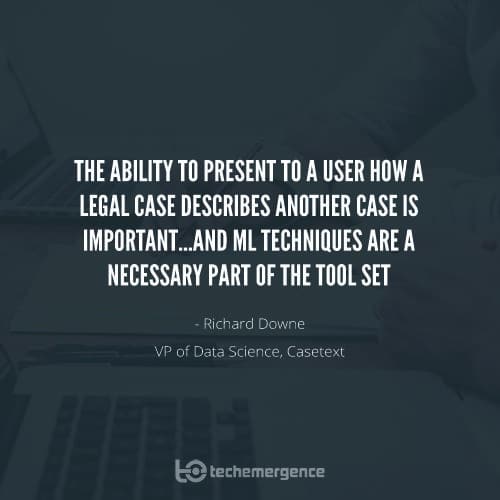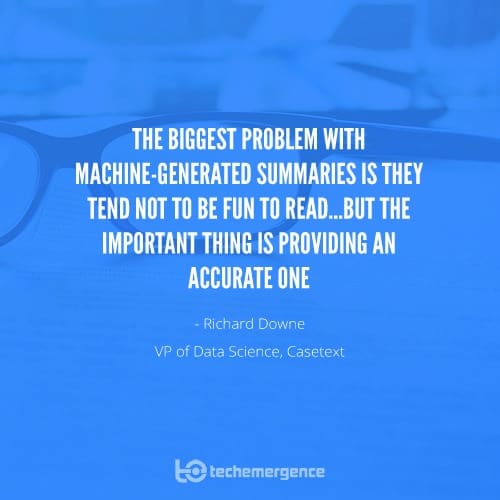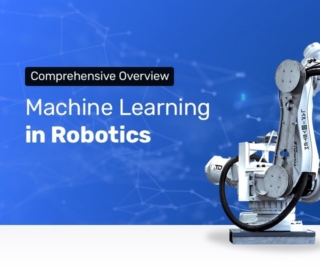
Episode Summary: When one thinks through important industry apps of AI, law or legal apps are not usually the first to jump to mind, but there’s certainly a need. Richard Downe PhD is vice president of Data Science at Casetext, a startup working on improving search and natural language processing and democratizing legal information. In this episode, he speaks about the current bottlenecks for people trying to get more out of of legal case documents, as well as some of the apps on which the Casetext team is working, to make these processes easier and to gain strategic advantage in this industry.
Expertise: Data Science and Computer Engineering
Recognition in Brief: Richard received his PhD in Electrical and Computer Engineering from the University of Iowa, where he researched the predictive analysis of the progression of cardiovascular disease. During graduate school he worked at IBM’s TJ Watson Research Center in New York and IBM’s Almaden, California lab, where he conducted natural language analysis of medical literature.
Current Affiliations: Vice President of Data Science at Casetext

Interview Highlights:
(1:32) What do you see as the biggest challenges in the legal space in terms of people understanding the connection between documents, the meaning between documents, and search in general?
(3:27) To be able to tease all that out via machine learning (ML) or other data science methods, seems like quite a challenge, how in layman’s terms are you working on this today?
(6:10) Have you thought about how you would crack that (sort through cases with ML) with enough citations from crowdsourcing, would that be possible with today’s technology?
(12:17) How do you summarize a legal text with any degree of confidence, how are you approaching that question which is obviously a big time saver and value driver in your space?
(16:24) How in those long tail where you don’t have nice succinct summaries, in the coming two to five years…what sorts of approaches do you feel confident might be able to get us to the point of much better summarized and swift search?












